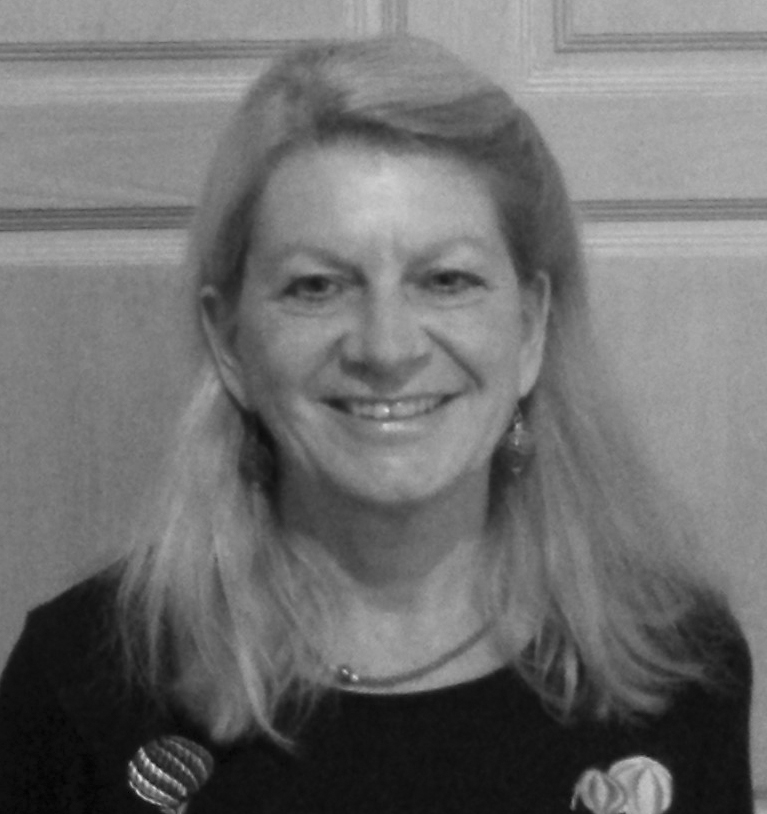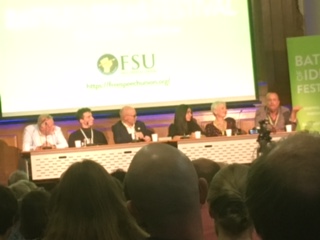21 October 2021
Battle of Ideas
A chance to debate.
By Lynda Goetz

A fortnight ago I had never even heard about this event. A week ago, I dropped everything to attend. For those who share my recent ignorance, this is an annual event, which has been happening since 2005 (with a break for obvious reasons last year) run by The Academy of Ideas. This think tank was founded by Claire Fox in 2000 ‘to provide a forum committed to open and robust public debate in which ideas can be interrogated, argued for and fought over’. Twenty years later this appears to be more necessary than ever as debate becomes increasingly polarised and free speech threatened by minority orthodoxies closing down discussion from those opposing their views.
So, how did the existence of this event penetrate my rural idyll and lead me to drop my volunteer gardening and my art group gathering to head up to Church House in Westminster for a weekend of discussion and debate with complete strangers? As some readers may know, Toby Young is a somewhat controversial journalist, commentator and educator, who set up the Free Speech Union (FSU) in February 2020. I had joined fairly early on. His organisation forms a natural fit with The Academy of Ideas and was both promoting and participating in the event, which over the space of two days provided nearly 70 different debates and discussions ranging from subjects such as ‘Covid to Climate Change: tackling the culture of fear’ through ‘Let’s talk about Race’ to ‘Going Green: Eco Dogma or Salvation?’.
The range of possible topics open for discussion was particularly impressive given the speed with which this year’s festival had been put together. Instead of the usual nine months to organise things, the Academy had just nine weeks in which to pull together the various subjects and the speakers for the panels or conversations. Depending on the nature of the particular event and the subject matter, rooms of different sizes in Church House were allocated. Given that each discussion lasted for an hour and a half and that for each of those slots there was a potential choice of at least 7 topics (except over the lunch break when that was reduced to four for those prepared to forego a breath of fresh air and some sustenance) there was a lot of choosing to do! It was essential to check out whereabouts in the building you needed to be and dithering was not really an option.
It is always hard to know if one made the best choices or how much one missed out on, but on the whole I was not unhappy with my choices – just wished I could have been in two places at once! The discussion about whether the NHS was fit for purpose was fascinating. The speakers, amongst whom were the eminent oncologist Dr Karol Sikora, were not all medical and had different ideas on how to deal with the problem (for it was generally agreed there was a problem, in spite of the quasi–religious status of the NHS), but it was interesting to hear not only the views of the panel but those comments, as well as questions, from the floor which highlighted the extent of the difficulties facing the centralised behemoth created in this country. Perhaps of particular interest in this discussion were the different ways in which it might be possible to improve outcomes – both for staff and patients.
Next up I had elected to attend the debate on assisted dying. This was a far more polarised debate with Dr Katherine Sleeman, a palliative care professor, in particular being vehemently opposed to any change in the law. This debate was of especial relevance at this point in time as Baroness Meacher’s Bill is about to have its second reading in the House of Lords on 22nd October. Comments from the floor were, in many cases, personal and poignant. Although not all speakers are a fan of comments as opposed to questions, this approach appears to be a feature of this event, which welcomes the evident expertise, knowledge and educated understanding of its attendees, all of whom are invited to participate. Participation is indeed a key part of the weekend. Those chairing debates are clear that part of their job is to gather comments from the floor. Thus, instead of one question at a time going back to the panel, a number of comments or questions are made and only after four or five have been garnered from the audience does the chair invite the panel to choose one or more on which to give their views. For me at least, it seems a long time since I attended anything where this inclusive approach was the norm.
Larger sessions over the weekend were held in the Assembly Hall and the Hoare Memorial Hall. I attended two of these. On Saturday, Toby Young chaired ‘How to Fight Cancel Culture and Win’, which apart from being a plug for the FSU, showed how important it is to stand up for the right to be heard and not to allow the illiberal left to trample over our individual liberties. Speakers included former policeman Harry Miller, and Nick Buckley MBE, as well as two students who had encountered problems in their universities.
Universities were a topic of another discussion entitled ‘The McDonaldisation of Universities’. Once again there was some consensus as to the existence of problems. However, what exactly these were and how to deal with the issues divided both the panel and the audience. Most seemed agreed on the fact that, as things stood, the universities were subject to more state intervention than ever, whilst at the same time being inexorably affected by market forces; with the result that they were subject to the worst of both worlds. Education was one of the themes of the weekend and it is probably fair to say that a good proportion of both speakers and attendees were connected in one way or another with the world of education. The educator Katherine Birbalsingh appointed by Liz Truss to the position of Social Mobility Chief, spoke on the subject of race, another topic threading through the weekend’s discussions.
For me, the final discussion of the weekend was on the subject of the Parental Consent Conundrum and the issue of Gillick Competence which first arose in the eighties. As this was a subject on which I had opined here in the Shaw Sheet a few weeks ago, I felt this was one I had to attend. In the event, perhaps because of the timing at 5pm on Sunday afternoon, or the greater attraction of other offerings, it was quite poorly attended and focused to a great degree on personal experiences and views of vaccine imposition on 12-15 year-olds, rather than the wider issues.
In spite of a rather disappointing finale, this is an event which I can thoroughly recommend to anyone interested in current affairs and in particular in debating and discussing contemporary issues. It is, of course, also a forum for learning and increasing one’s knowledge of areas of interest. The age range was wide and went from school children and students (who get special concessionary rates) to those in advanced retirement (who are also entitled to their own concessionary rates!) who have not lost an interest in contemporary controversies. For those who do not wish to wait for next year’s London offering, there is a one day event in Buxton at the end of this month on 30th October 2021. I would honestly recommend you consider going. (Buxton Battle of Ideas Festival).


